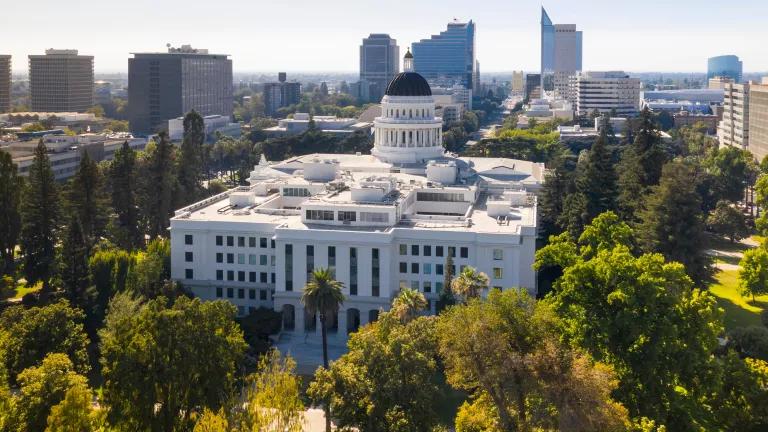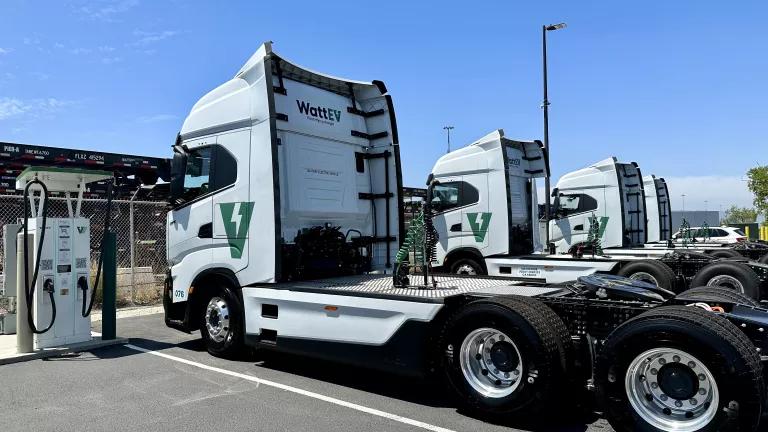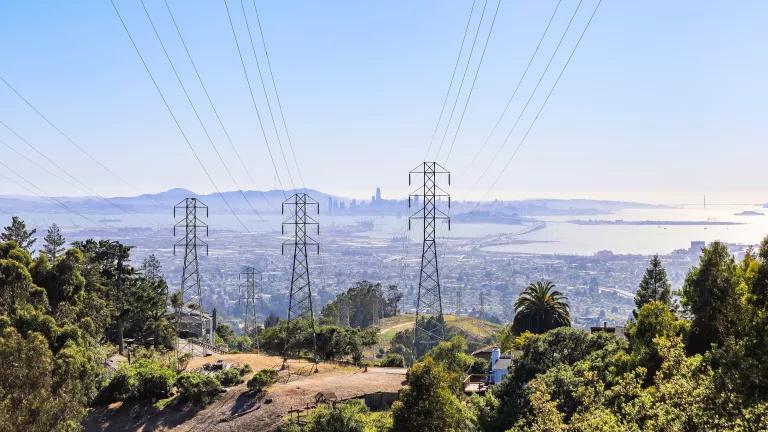Top Things You Should Know About California’s Low Carbon Fuel Standard
This year, California began quietly implementing the Low Carbon Fuel Standard (LCFS) that will result in production of clean, safe and renewable forms of energy to fuel our cars and trucks. The LCFS is one of the state's biggest measures to reduce our oil dependency, spur much-needed investment, and creating clean fuel jobs that will aid California's economic recovery. Here are the top things you should know:
Low carbon what?
Think of the LCFS as helping California run on a more balanced diet of fuels instead of just high carbon oil. Similar to pollution limits for smokestacks and cars, the LCFS is a performance-based target for fuels sold in California. The LCFS lets oil companies decide which technologies to invest in to produce cleaner, alternative fuels that meet the standard.
Why do we need it? Aren't companies like Chevron investing in alternatives, like their commercials claim?
The sad truth is for every dollar spent by oil companies to produce more oil, they spend only a fraction of a penny on alternative clean fuel technologies.[1] The LCFS fills a critical gap by ensuring oil companies are actually investing significantly in alternatives as opposed to just saying they are. The LCFS is designed to clean up California’s fuel supply, reduce the state’s dependence on oil, and protect the air we breathe.
How does it work?
Much like fuel-economy standards that require car companies to improve the average fuel economy across their entire fleet, the LCFS requires oil companies to reduce the average amount of pollution across their fuel supplies. In simplest terms, oil companies have to sell cleaner fuels to meet the standard. A company that chooses to sell dirtier fuels made from tar sands would have to sell a higher proportion of cleaner fuels—or reduce pollution from that dirty fuel.
Are clean fuels available that meet the standard?
Many California and U.S. based companies are ready to produce clean fuels to meet the standard. We already have the technologies to significantly reduce our dependence on oil but we need to ensure oil companies are putting the technology in place. Clean, alternative fuels are just as cost-effective as oil for consumers, and many can be sourced domestically, thereby reducing our dependence on foreign oil.
How does this help the state?
California consumers and businesses have spent over $60 billion last year on gasoline and diesel with over $40 billion of this being sent outside the state and overseas. Instead, we can reinvest this in safe, domestic, cleaner energy sources like renewable, natural gas, and advanced biofuels to fuel our cars and trucks.
The standards will also attract greater clean fuel investments and companies to California that will result in more jobs. Just like California took the lead in incubating and growing the silicon industry, the internet software industry, and the solar industry, the state can become a leader in expanding the clean fuels industry.
Are oil companies doing what California wants or just fighting against it?
Not surprisingly, oil companies want to weaken the LCFS pollution targets rather than invest in cleaner fuels. Added to this, they are currently arguing to allow emissions from even dirty fuel sources like tar sands to be ignored. With 95% of the fuels market dependent on oil and the five largest oil companies earning nearly $100 billion in profits annually, why would the industry want change?[2] So it comes as no surprise that they would rather maintain the status quo than invest in cleaner, alternative fuels that so many California-based clean fuel companies are ready to supply to meet the LCFS.
What is happening next month and how can the public participate?
On December 16th, the California Air Resources Board (ARB) will host a public hearing in Sacramento, CA. Join us in asking ARB to reject the oil industry’s argument to weaken the standard and instead strengthen it by requiring each oil refinery to be responsible for the amount of tar sands and other dirty fuels it uses and to offset the additional carbon pollution from these fuels.
Tell the California Air Resources Board that you support a strong Low Carbon Fuel Standard – one that compels the oil industry to phase out investments in even dirtier crude oils like tar sands and phase in investments in clean fuels.
Submit your comments at: http://www.arb.ca.gov/lispub/comm/bcsubform.php?listname=lcfs2011&comm_period=A
or write to: Clerk of the Board, California Air Resources Board, 1001 I Street, Sacramento, CA 95814.
-------------------
(1) International Energy Agency, World Energy Outlook 2009 together with Bloomberg New Energy Finance data.
(2) Average, annual profits from 2006 to 2010 from BP, Chevron, ConocoPhillips, ExxonMobil, and Shell as reported in their annual financial reports.




